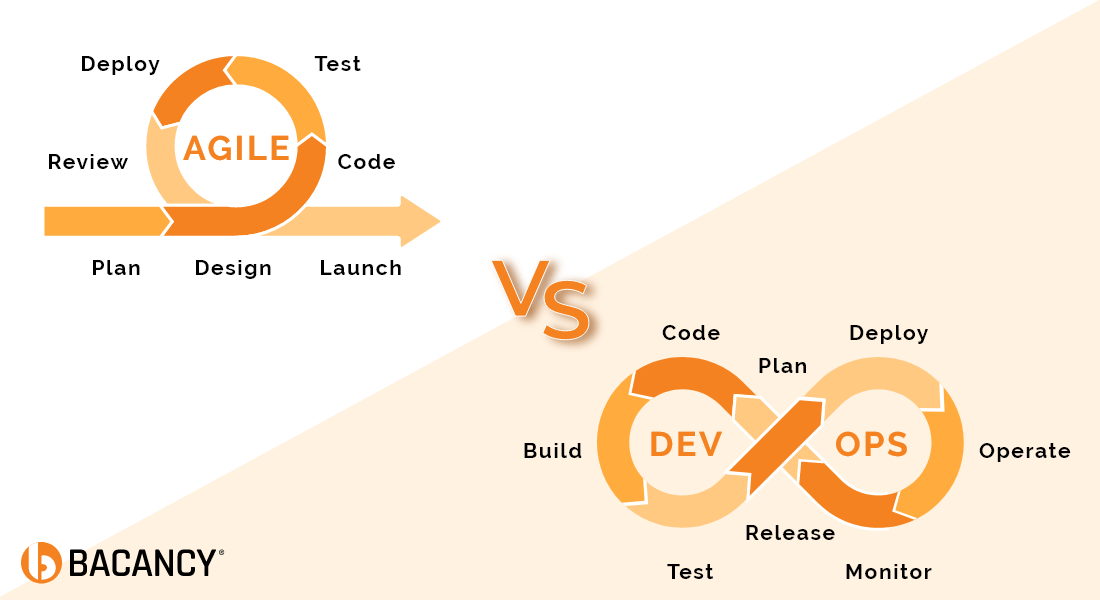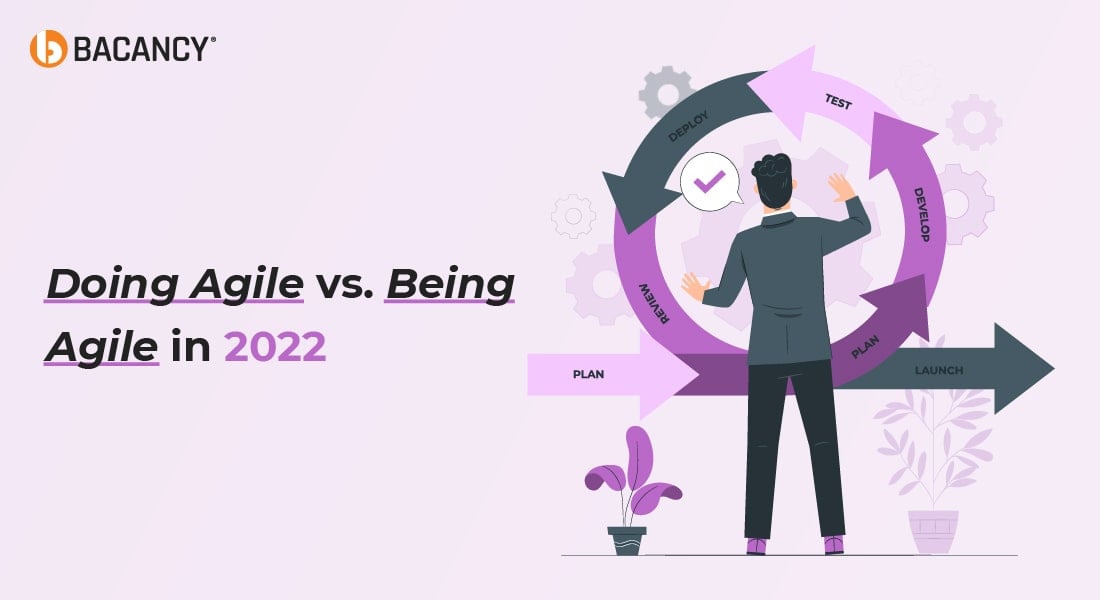| Parameters | Scrum Master | Agile Coach |
|---|---|---|
| Focus Areas | • Focuses on a single team • Focuses on assisting team with the daily workflow. |
• Focuses on all the teams of the organization • Focuses on creating an overarching system for the teams and the leadership to follow. |
| Role | • Very often a transitioned project manager with an extensive or not so extensive Scrum • knowledge and experience • Works with a single team • A scrum master makes sure that everything is flowing smoothly in the Scrum process. |
• A seasoned and evolved scrum master with vast knowledge and experience in Agile practices • Works with all the teams, leaders, and other stakeholders • An agile coach defines what, how, when, who and why of that flow. |
| Knowledge | A scrum master needs to master the Scrum framework thoroughly. | An Agile Coach knows various Agile methods, including Scrum, Kanban, Scaling Methods, and many others. |
| Duration | Scrum master works with the Scrum Team in each sprint and stays with it throughout the life of the Scrum Team. | Limited in comparison to the duration of a scrum master. An agile coach stays with the organization until the goal is accomplished and then moves on. |
Table of Contents
Introduction
The question of the difference between a scrum master and agile coach often arises when the organizations want to shift to the Agile methodology from their traditional waterfall software development culture. Transition as we know is the most difficult aspect of any development process. And, it is during this delicate phase, that organizations must commit themselves to truly understand the difference between a scrum master and an agile coach.
In simpler words, the difference between scrum master vs agile coach is a scale or a level, and therefore, of accountabilities. A job of a scrum master is more about coaching the team, whereas a job of an agile coach is more about coaching the entire organization.
When does an organization face Scrum Master vs Agile Coach scenario?
An industry open secret about Scrum is that it is “easy to understand but difficult to master.” Scrum framework undoubtedly is a simple 14-page document, but, thorough absorption of the essence of those 14 pages is easier said than done. And, which is why, when an organization is transitioning to the Agile methodology, it needs a professional who has years of experience and knowledge of the Agile methodology.
It is exactly at this moment that the organization can do itself a great favor by having on board both scrum master and agile coach. And, it is exactly at this juncture that the relationship between the two or the age-old debate of scrum master vs agile coach defines the success of the organization’s aspiration to be “Agile”.
Following are some of the reasons why an organization would need able scrum masters and agile coach during this difficult, tricky, and delicate transition:
- Mere reading of Scrum Guide does not produce a Scrum Master. It requires patient and sincere practice, and years of experience rooted in solid knowledge of the Agile methodology.
- To implement Agile means to move to a new internal landscape which is often unknown. Organizations need experts who can help team unlearn their deeply ingrained old belief systems and work patterns.
- It is of paramount importance to have an experienced professional who can guide the team through this transition by means of providing solid support and removing inevitable obstacles at the enterprise level. Normally, such a role of the guide is called Agile Coach.
- The same needs to be done by the scrum master as well. Though, her responsibility is much more concentrated at the team level than at the organizational level.
- During the Agile transformation, an organization, thus, needs to have adequate resources that help it at both micro and macro level. A scrum master and the agile coach are the names of such resources that need to be utilized wisely and intelligently. Scrum master vs agile coach then is not about exclusion but inclusion of two similar yet distinct professionals into the integrated system of agile development.
Let us explore what exactly these resources, and their responsibilities are, and how they can help organizations achieve better business value and credibility by building high-performing Agile teams.
What is a Scrum Master?
We have already discussed about the misconceptions about the role of a scrum master in our earlier post. However, when we are exploring the role of a scrum master in the context of a pressing debate of Scrum Master vs Agile Coach, it is important to explore the role of a scrum master from the perspective of that debate.
A scrum master in comparison to an agile coach is more intimately involved with the team. A scrum master is an inside observer of the team in comparison to an agile coach who performs the role of an outside observer.
A scrum master is:
- An integral part of the agile development team
- A manager who manages the flow of the processes within the team
- A guide who helps team follow agile principles
- A trainer who trains the team to self-manage and self-organize
- A mentor who helps the team overcome impediments during the agile software development process.
A scrum master is someone who may have a narrower scope of work than that of an agile coach. An effective and experienced scrum master can implement her vast knowledge and employ strategies and practices that help the teams perform at their best.
When an organization has knowledgeable and experienced scrum master, it tends to give her additional responsibility of an agile coach too. This, at times, though, proves to be a fatal mistake.
Scrum Master role and responsibilities
When there is a scrum master vs agile coach discussion, the roles and responsibilities of a scrum master and agile coach would often overlap. In essence, their roles and responsibilities are same, more or less. However, these differ greatly in their scope.
Following are some of the roles and responsibilities of a scrum master when the enterprise is moving to the Agile methodology:
- Imparting knowledge of Scrum theory and practices
- Teaching effective communication skills
- Helping individual team members how to continuously and consistently improve their knowledge of agile and their skills
- Giving invaluable assistance in spring planning and backlog management
- Observing and improving the outcomes of the team performance based on her guidance
- Empowering the team to produce high-value increments
- Making the team efficient enough to make and meet commitments.
What Does an Agile Coach Do?
In the absence of the formal definition of an Agile Coach by the Scrum Guide, it is important to note that many a times, enterprises do perceive this very important role same as the scrum master.
But, even if an agile coach is an experienced scrum master, the one is much more than a scrum master. An agile coach is a unique professional with advanced training and special skill sets.
It is quite natural for enterprises to misunderstand a scrum master as the roles and responsibilities of both these professionals indeed overlap. But, an agile coach works at a much wider and broader level than a scrum master. Agile coach has the skills and experience that make the enterprises achieve overall agility. Agile coach is:
- A leader with a progressive perspective
- A supporter to multiple teams as well as to the leadership
- A thorough disciplinarian who motivates teams to continuously and consistently practice and improve
- A mentor
- A facilitator
- A trainer
- A servant leader
Every enterprise which is gearing up for the transition to the agile methodology needs an agile coach to inspire teams to create effective and high-value solutions independently and creatively.
An Agile Coach who can find a balance between her roles of a mentor, a facilitator, and a trainer is undoubtedly an asset to the organization.
Roles and responsibilities of an Agile coach
As an advanced scrum master, the role of an agile coach is wider and bigger than that of a scrum master. Some of her usual responsibilities are:
• Clearly communicating the agile methodology to the teams as well as to the leadership
• Making constant efforts to instill best practices at the team and at the organizational level
• Training teams to exploit Agile tools and strategies in the correct way
• Constantly observing the progress of the teams as well as of organization
• Providing support to remove any obstacles in the path of the agile transformation as well as development process
• Making all the stakeholders and the leadership participate actively in the process
• Advising the leadership when it is adopting Agile mindset and culture
• Promoting initial retrospectives and stand-ups.
Having said this, it would be interesting to note that a true agile coach would coach the team in such a way that she would make her own role redundant. Yes. That is the ideal situation to be in for any agile coach, however, ironical it may sound!
It is also a mark of genuine coaching that teams no longer require intense agile coaching due to the very coaching of the agile coach! Indeed, they have been able to outgrow their Agile Coach. Such an Agile coach, in essence, is a real evolution of an experienced scrum master.
Transformation of a Scrum Master into an Agile Coach
When Sutherland and Schwaber defined the Scrum, scrum masters were by default designed to be the agile coaches. It is no wonder therefore, why we do not have any separate definition or guide that exclusively sets forth the roles and the responsibilities for an agile coach.
The reason we do not see this natural transformation of a scrum master into an agile coach is that enterprises do not appoint the scrum master in its true spirit. They tend to directly appoint either any project manager or an agile coach to help them navigate through the transition.
The direct appointment of an Agile Coach may give instant strength, but, it denies the business its effective legacy governance. It is therefore, important that the organizations appoint scrum masters keeping in mind the longer and broader picture of the organization including the importance of legacy governance.
One of the ways enterprises can arrive at this natural transformation of the scrum master into an agile coach is by imparting effective training to the scrum masters. The agile coaches can train, develop, and empower strong scrum masters who can take up the job of a coach with adequate skills and knowledge.
Following are some of the ways enterprises can have their own agile coaches by growing their scrum masters:
- Providing necessary professional development training and guidance to scrum masters
- Scrum masters having access and authority to make things happen for their respective teams
- Scrum masters having adequate power to focus on team-centric growth strategies.
Organizations’ full support and willingness to see their scrum masters transforming into powerful agile coaches with extraordinary coaching skills and expertise can make this transformation smooth and satisfactory.
Scrum Master vs Agile Coach: Key differences
As we have already discussed, the major difference between a scrum master and an agile coach is that of a scope. Let us have a look at some of the major areas in which they differ:
Conclusion
It is quite clear that a scrum master and agile coach are not mutually exclusive. That one is optional to the other is the biggest misconception the organizations harbor. And, when they move to the agile transformation with either a scrum master or an agile coach, results are often disastrous.
The enterprises need to know that both the scrum master and the agile coach are their pillars of strength. They both are needed for successful and smooth agile transformation.
It is equally important that the organizations realize this crucial fact that both these roles cannot be taken up by just one person. That these two leaders do not replace each other is an important fact the enterprises need to know and implement too.
The roles of scrum master and agile coach have their unique areas of focus. Hence, it is never scrum master vs agile coach, but it is always scrum master and agile coach! So if you want to achieve the desired business goals and sustainable agility across the organization, you should contact the best Agile Software Development Company that can bring agility to your projects.
Your Success Is Guaranteed !
We accelerate the release of digital product and guaranteed their success
We Use Slack, Jira & GitHub for Accurate Deployment and Effective Communication.





